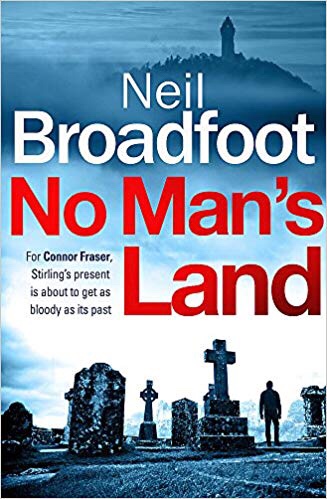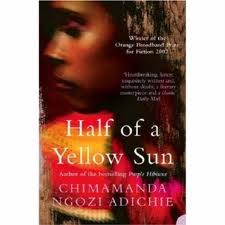
Today it’s my pleasure to welcome John Lawton to the blog. His latest novel ‘Friends and Traitors‘ is available now.
Many thanks to John for taking the time to answer my questions today.
Vic x

Tell us about your books, what inspired them?
I really don’t know. I’ve written most of my life. Certainly since 1957 when I first encountered Shakespeare’s history plays. And in the years that followed, since you can’t imitate Shakespeare’s dialogue unless you’re Tom Stoppard (and whoever watched or read him for his plots?), I came under the influence of writers who were writing stunning dialogue. My first sight of a Pinter play about three years later is still vivid.
Peter Cook’s EL Wisty monologues were compulsive and when the Dagenham Dialogues with Dudley Moore came along … well, I think I learnt as much from them as I did from Pinter. The really odd thing is the switch from writing drama to writing novels, which happened about 1983 … cause? … failure. Wasn’t getting anywhere as a playwright. That said, much of what I write, certainly in earlier drafts, strikes me as reading like a two-hander play. That’s how most of my books begin … two voices talking in my head.
A taste for dialogue, a course in Russian at University, reading Gorky Park, watching Ian McEwan’s The Imitation Game (not the recent film of the same name) all fuelled the plot line that became my first Troy novel.
Where do you get your ideas from?
Dunno where they come from, but I know where they arrive. Usually in trains, and almost as often out walking. I do a lot of walking.

Do you have a favourite story / character / scene you’ve written?
I think my favourite scene might be towards the end of A Little White Death, when Tara Ffitch takes about a page to slam the morality that put her in court. I stand by every word of that. And I’m quite partial to the scene in Friends and Traitors when Guy Burgess rattles off the list of things he misses in his Russian exile. My favourite characters would be among the minor figures … Fish Wally in two or three novels, and Swift Eddie in most of them — a part I wrote hoping Warren Clarke would play him one day.
Are you a plotter or a pantster?
Not sure I quite understand the question, but I usually have a plot fully worked out in my head before I write a word. Only book I’ve ever plotted on paper was Black Out.
Can you read when you’re working on a piece of writing?
Yes. But not books by anyone doing what I’m doing.
I spent last autumn on a Mick Herron binge, and I think I’ve just begun a Timothy Hallinan binge. Neither of them write historicals.
I keep picking up and putting down Illusions Perdues. I think I might have to wait for a new, better translation, but if that theory works why do I have six different translations of Ovid?
What’s the best writing advice you’ve ever been given and who it was from?
“Write a book a year and take control of your life” – Gore Vidal. Somewhere I still have the letter.
I’ve never been able to do that of course. Come to think of it, I turned down a book-a-year offer from Penguin ages ago. I’m a fan of Philip Kerr’s Bernie Gunther series which appears very regularly and I don’t know how he does it. My ‘mentor’ Ariana Franklin got up to a book a year in her seventies, but I honestly think it was exhausting for her. With hindsight I wish she’d slowed down. So good advice as yet unheeded.
What can readers expect from your books?
Writer vanity prompts me to say that I hope I can shatter expectations with the odd surprise, but a running character creates expectations otherwise she/he would be rather inconsistent. So expect politics, romance, a touch of mayhem. Do not expect a who-dunnit, as my books can bang on for another fifty pages after the who of dunnit is obvious. I cannot change Troy’s character, he will change only as the time-setting of the novels change (and I’ve never liked the idea of fiction existing outside of time … Troy ages and hence changes) but I quite deliberately move the locations around. Black Out is set entirely in London, with Old Flames I went rural and in Friends & Traitors has a lengthy continental journey before settling back in London.
Have you got any advice for aspiring writers?
Yep. Abandon all social media. Leave it to Trump, he’s welcome to it. I am looking forward to his ‘Twitts from Prison’. Shut down your twitt and bookface accounts, resign from your readers & writers group, bin your iphone, stop talking about writing and write.
If anyone asks why they haven’t seen much of you lately tell them you’ve been studying for the civil service entry exam and are hoping for a job with the ministry of [fill in blank as appropriate]. My usual choice is the ‘White Fish Authority.’ Such a wonderful name for a government ministry, alas it shut up shop in 1981. I wonder if there was ever a ‘Chips and Mushy Peas Marketing Board’?
What do you like and dislike about writing?
Like … the doing of it. One of the best narcotics around and it’s free.
Dislike … promoting a book. Best regarded as a necessary evil. I hate being photographed. (Sorry, Ali Karim.)
Are you writing anything at the moment?
Yep. Third book in the Wilderness trilogy. And another game of with Zoë Sharp. All done by email as we live in different countries.
What’s your favourite writing-related moment?
Dunno. I live by writing, which I consider most fortunate, but to say my moment was the first time I received a fat cheque would be both crass and untrue. I’m not interested in prizes, the gongs and daggers, and winning one didn’t engage with me much. I think it has to be ‘finishing-summat-that-had-me really-foxed’ … which has happened from time to time, but I’m not saying which book or books it was.






